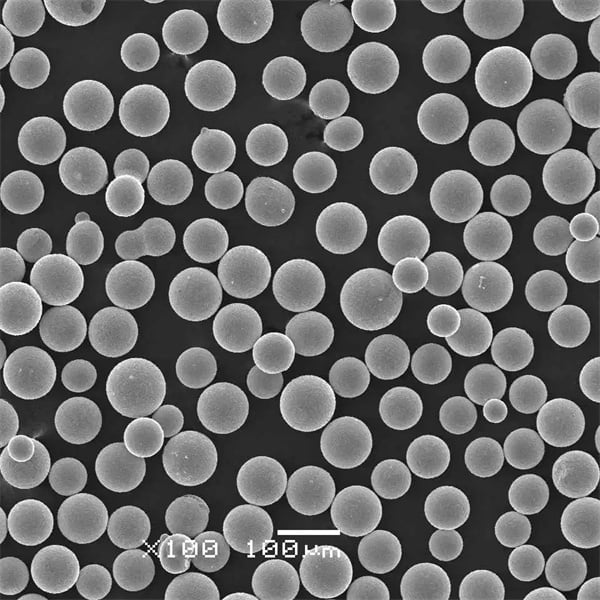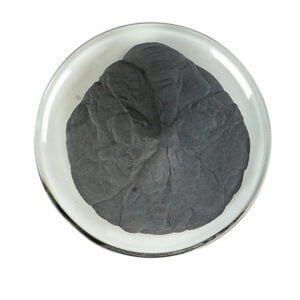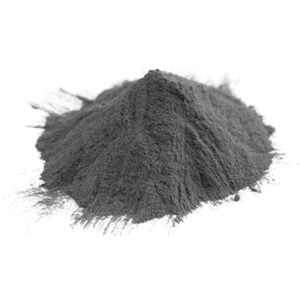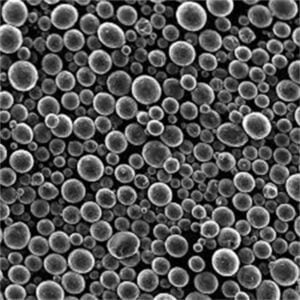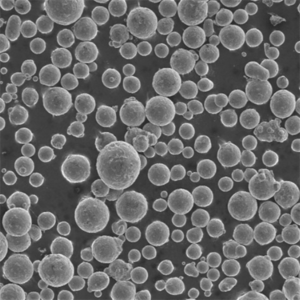FeNi42 Powder
FeNi42 powder, also known as Invar 42 or Fe-42Ni alloy powder, is a nickel-iron alloy characterized by its exceptional low thermal expansion properties. This unique alloy exhibits minimal dimensional changes over a wide temperature range, making it an invaluable material for applications demanding high thermal stability.
Low MOQ
Provide low minimum order quantity to meet different needs.
OEM & ODM
Provide customized products and design services to meet unique customer needs.
Adequate Stock
Ensure fast order processing and provide reliable and efficient service.
Customer Satisfaction
Provide high quality products with customer satisfaction at the core.
share this product
Table of Contents
FeNi42 powder, also known as Invar 42 or Fe-42Ni alloy powder, is a nickel-iron alloy characterized by its exceptional low thermal expansion properties. This unique alloy exhibits minimal dimensional changes over a wide temperature range, making it an invaluable material for applications demanding high thermal stability.
The table below summarizes the key characteristics of FeNi42 powder:
| Characteristic | Description |
|---|---|
| Composition | 42% nickel, 58% iron (nominal) |
| Thermal Expansion Coefficient | Around 1.2 x 10^-6 /°C (20-100°C) |
| Density | 8.1 g/cm³ |
| Melting Point | 1430-1510°C |
| Hardness | 140-220 HV |
| Magnetic Properties | Ferromagnetic |
FeNi42 Powder Composition
The unique properties of FeNi42 powder stem from its carefully controlled composition. The 42% nickel content is critical in achieving the alloy’s low thermal expansion behavior. This composition lies within the invar region of the iron-nickel phase diagram, where the face-centered cubic (FCC) crystal structure exhibits minimal lattice parameter changes with temperature variations.
Manufacturing of FeNi42 Powder
FeNi42 powder is typically produced through gas atomization or water atomization processes. In gas atomization, the molten alloy is disintegrated into fine droplets by high-pressure inert gas jets, rapidly solidifying into spherical particles. Water atomization follows a similar principle, using high-pressure water jets instead of gas.
The resulting powder particles exhibit a spherical morphology and a narrow size distribution, making them suitable for various powder metallurgy processes, such as metal injection molding (MIM), hot isostatic pressing (HIP), and additive manufacturing (AM) techniques like selective laser melting (SLM) or electron beam melting (EBM).
Properties of FeNi42 Powder
- Low Thermal Expansion: The most remarkable property of FeNi42 powder is its extremely low coefficient of thermal expansion (CTE), approximately 1.2 x 10^-6 /°C within the temperature range of 20-100°C. This low CTE ensures minimal dimensional changes in response to temperature fluctuations, making FeNi42 components highly dimensionally stable.
- Corrosion Resistance: FeNi42 alloy exhibits good corrosion resistance properties, particularly in marine and industrial environments, thanks to its high nickel content and the formation of a passive oxide layer.
- Mechanical Properties: FeNi42 powder exhibits moderate strength and hardness, with typical hardness values ranging from 140 to 220 HV, depending on the processing conditions and heat treatment.
- Magnetic Properties: FeNi42 is a ferromagnetic alloy, retaining its magnetic properties over a wide temperature range, making it suitable for various magnetic applications.
Industrial Applications of FeNi42 Powder
The unique combination of properties offered by FeNi42 powder makes it an attractive choice for various industrial applications, as highlighted in the table below:
| Application | Description |
|---|---|
| Precision Instruments | Used in components for optical instruments, telescopes, surveying equipment, and other high-precision instruments where dimensional stability is critical. |
| Aerospace and Avionics | Employed in aircraft components, satellite structures, and other aerospace applications that require low thermal expansion and high dimensional stability. |
| Mechanical Systems | Found in various mechanical systems, such as bearings, shafts, and gears, where thermal expansion must be minimized to ensure accurate and reliable operation. |
| Semiconductor Industry | Utilized in components for semiconductor manufacturing equipment, where thermal stability is essential for precise positioning and alignment. |
| Additive Manufacturing | Increasingly used as a feedstock material for additive manufacturing processes like selective laser melting (SLM) and electron beam melting (EBM), enabling the production of complex, highly dimensionally stable components. |
Advantages and Limitations of FeNi42 Powder
Like any material, FeNi42 powder has its advantages and limitations, which should be carefully considered when selecting it for specific applications. The table below summarizes the key pros and cons:
| Advantages | Limitations |
|---|---|
| Extremely low thermal expansion coefficient | Higher cost compared to some other alloys |
| High dimensional stability over a wide temperature range | Limited availability and supply chain challenges |
| Good corrosion resistance properties | Moderate mechanical strength compared to some high-strength alloys |
| Ferromagnetic properties retained at various temperatures | Potential for nickel allergies or toxicity in certain applications |
| Suitable for various powder metallurgy processes | Strict composition control required for optimal properties |
FeNi42 Powder Specifications and Standards
FeNi42 powder is available in various grades and specifications from different suppliers. The table below provides an overview of common specifications and standards:
| Specification/Standard | Description |
|---|---|
| AMS 5567 | Aerospace Material Specification for iron-nickel alloy powders |
| ASTM F1684 | Standard specification for nickel-iron alloys (UNS N08800, UNS N08810, UNS N08811) |
| ISO 5832-5 | Implant for surgery – Metallic materials – Part 5: Wrought low-expansion nickel-iron alloys |
| DIN 17456 | Nickel-iron alloys (Invar) for low thermal expansion applications |
These specifications and standards define the composition, physical and mechanical properties, quality control requirements, and other critical parameters for FeNi42 powder and its applications.
FeNi42 Powder Suppliers and Pricing
FeNi42 powder is produced and supplied by various manufacturers worldwide. The table below lists some of the major suppliers and their indicative pricing ranges:
| Supplier | Pricing Range (USD/kg) |
|---|---|
| Sandvik Osprey | $50 – $100 |
| Carpenter Powder Products | $60 – $120 |
| Hoganas AB | $70 – $110 |
| Rio Tinto Metal Powders | $80 – $140 |
| Ametek Specialty Metal Products | $90 – $150 |
Please note that pricing can vary based on factors such as order quantity, purity, particle size distribution, and location. It is recommended to contact suppliers directly for accurate and up-to-date pricing information.
FAQ
| Question | Answer |
|---|---|
| What is the main advantage of using FeNi42 powder? | The primary advantage of FeNi42 powder is its exceptionally low thermal expansion coefficient, which ensures minimal dimensional changes over a wide temperature range. This property makes it ideal for applications requiring high dimensional stability and precision. |
| How does the thermal expansion coefficient of FeNi42 compare to other materials? | FeNi42 has an extremely low coefficient of thermal expansion (CTE) of around 1.2 x 10^-6 /°C within the temperature range of 20-100°C. In comparison, the CTE of aluminum is around 23 x 10^-6 /°C, and steel is around 12 x 10^-6 /°C, making FeNi42 significantly more dimensionally stable with temperature changes. |
| What are the typical applications of FeNi42 powder? | FeNi42 powder is commonly used in precision instruments, aerospace and avionics components, mechanical systems, semiconductor equipment, and additive manufacturing applications where dimensional stability and low thermal expansion are crucial. |
| How is FeNi42 powder produced? | FeNi42 powder is typically produced through gas atomization or water atomization processes, where the molten alloy is disintegrated into fine droplets by high-pressure gas or water jets, respectively, and rapidly solidified into spherical particles. |
| What are the limitations of using FeNi42 powder? | While FeNi42 powder offers exceptional thermal stability, it has limitations such as higher cost compared to some other alloys, limited availability and supply chain challenges, moderate mechanical strength, and potential for nickel allergies or toxicity in certain applications. |
| Can FeNi42 powder be used in additive manufacturing processes? | Yes, FeNi42 powder is increasingly being used as a feedstock material for additive manufacturing processes like selective laser melting (SLM) and electron beam melting (EBM), enabling the production of complex, highly dimensionally stable components. |
| What are the typical standards and specifications for FeNi42 powder? | Common standards and specifications for FeNi42 powder include AMS 5567, ASTM F1684, ISO 5832-5, and DIN 17456, which define the composition, properties, quality control requirements, and other critical parameters for the alloy. |
Get Latest Price
About Met3DP
Product Category
HOT SALE
CONTACT US
Any questions? Send us message now! We’ll serve your request with a whole team after receiving your message.

Metal Powders for 3D Printing and Additive Manufacturing
COMPANY
PRODUCT
cONTACT INFO
- Qingdao City, Shandong, China
- [email protected]
- [email protected]
- +86 19116340731






